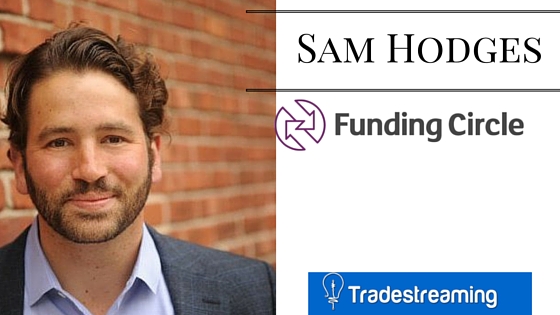Professional marketplace lending association aims for clarity, transparency
The future of online lending: 13 top business lenders
When JP Morgan announced it would begin offering loans to its small business clients via a partnership with a fintech startup, the market took notice. Instead of building its own online lending offering, the biggest US bank chose to partner with OnDeck, whose stock price spiked almost 30% upon the announcement. Those following what’s happening in online lending have witnessed billions of dollars of debt and equity that’s poured into the space over the past couple of years.
In the wake of the financial crisis of 2008, banks have tightened lending criteria and that’s provided an opportunity for technology and service startups to step in. In the aggregate, though these firms have enabled billions of dollars of lending to small businesses over the past few years, they’re merely a speck on the entire map of lending, paling in comparison to their offline competitors.
These startups have generally taken 2 different approaches:
- marketplace lending: Popularized in the consumer space, companies like Lending Club have created vast marketplaces of lenders and borrowers. While Lending Club has entered into the SMB lending space, there are other pureplays like Lending Circle that have made SMB lending their bread and butter.
- balance sheet lenders: these companies aren’t acting as brokers but actually underwrite their own loans to SMB borrowers. It gets a little more complicated as institutional lenders like Victory Park provide lending facilities to these online lenders. Whether they’re lending out their own equity or someone else’s cash, balance sheet lenders are assuming the underwriting risk.
Here’s a good breakdown of the space by Orchard Platform, which built and services some of the underlying marketplace lending technology for the platforms and the institutional lenders participating in this form of credit.

As we’ve seen in the robo-advisory space, the online lending marketplace appears to be splitting into two:
- pureplay startups that are taking incumbent banks head on competitively
- companies that provide enabling technology to the existing banking infrastructure to work with banks to develop their own online lending offerings
Most of the lending that’s happening online is unsecured. There is a growing focus on invoice financing and there’s been a lot of interest on creative solutions that provide more security than plain vanilla credit.
Companies like PayPal and Amazon are lending to merchants on their platforms as all payments run through their shopping charts. As startups and incumbents invest more in the online lending space, ecommerce companies have an interesting role to play in the industry. In this market, everyone can be an online lender.
The market opportunity is vast and growing quickly. Online SMB lending was about $9B in 2015 and expected to rise to over $80B by 2020, according to Intuit. New technology promises to make capital more inclusive, streamline to process for assessing creditworthiness, and to cutdown on the paperwork and waiting time typical of traditional lending.
Here are the top online small and medium business lenders that should be on your radar.
5 trends we’re watching this week
[alert type=yellow ]Every week at Tradestreaming, we’re tracking and analyzing the top trends impacting the finance industry. The following is a list of important things going on we think are worth paying attention to. For more in depth trendfollowing, subscribe to Tradestreaming’s weekly newsletter (published every Sunday).[/alert]
1. Funding Circle’s Sam Hodges on scaling growth by navigating globally (Tradestreaming)
Sam Hodges joins the Tradestreaming podcast to talk about going global, the challenges his firm faced expanding cross borders, and how he’s ramping growth for next year.
2. Swift to launch global payment innovation project (banking technology)
Due to launch early next year, this new platform will “improve the customer experience in correspondent banking by increasing the speed, transparency and predictability of cross-border payments”. Nice.
3. Funding Circle is 3rd biggest SMB lender in UK behind RBS and Lloyds (City A.M.)
Illustrating the power of crowdfunding, the third biggest lender to UK small businesses isn’t a bank or building society but peer-to-peer lending platform.
4. Is Walmart About To Ignite Mobile Payments? (PYMNTS)
Walmart is getting into mobile payments in a big way with Walmart Pay.
5. Fintech M&A climbs to $4B in 2015, data analytics may drive more deals in 2016 (InvestmentNews)
M&A activity totaled nearly $4 billion in 2015, led by SS&C’s acquisition of Advent and marked by smaller deals for services ranging from financial planning software to robo-advisor technology.
The Startups: Who’s shaking things up (Week ending December 13th, 2015)
[alert type=yellow ]Every week, Tradestreaming highlights startups in the news, making things happen. The following is just part of this week’s news roundup. You can get these updates delivered direct to your inbox by signing up for the Tradestreaming weekly newsletter.[/alert]
TipRanks’ Uri Gruenbaum on the need for accountability and transparency in stock market analysis (Tradestreaming)
Analysts and pundits get their feet held to the fire with TipRanks.
Funding Circle is 3rd biggest SMB lender in UK behind RBS and Lloyds (CityAM)
Illustrating the power of crowdfunding, the third biggest lender to UK small businesses isn’t a bank or building society but peer-to-peer lending platform.
Noah Waisberg of Kira Systems on the role of automated contract analysis in fintech (Tradestreaming)
Imagine a future world where much of the contractual work around financings happens algorithmically – that’s what Kira is working on.
From Flipping Burgers To A $2.25B Fintech Startup (TechCrunch)
Klarna co-founder and CEO Sebastian Siemiatkowski took the stage at Disrupt London to discuss his payment startup and the wider financial tech ecosystem.
Startups raising/Investors investing
Funding Circle’s Sam Hodges on scaling growth by navigating globally (Tradestreaming)
Sam Hodges joins the Tradestreaming podcast to talk about going global, the challenges his firm faced expanding cross borders, and how he’s ramping growth for next year.
Sequoia Invests $13 Million In Seed Round For Lemonade, a P2P Insurance Platform (TechCrunch)
In one of the largest seed investments in the firm’s history, Sequoia Capital is committing to a $13 million round for Lemonade.
New Marketplace Lender Backed Secures $1.5M in Seed Funding From iAngels, Cyhawk Ventures (Crowdfund Insider)
Backed, a new marketplace lending platform that seeks to lower borrowing costs for young adults by mitigating traditional co-signing risks, raises a round.
Income& Secures $2.9 Million; Announces Peer-to-Peer Marketplace PRIMO (Crowdfund Insider)
Income&, based in San Francisco, runs PRIMO, a fixed income marketplace backed by mortgages.
Stealthy London Startup Curve Raises $2M From Notable Fintech Backers (TechCrunch)
Stealthy London-based fintech startup Curve has closed a $2 million seed round from a rather notable list of early backers.
Real estate lender Groundfloor takes in $5M Series A (PE Hub)
Groundfloor scores a nice round to build out its real estate lending platform that’s open to the general public.
Trizic Raises $2 Million to Help Advisors Compete with Algorithms (Finovate)
The San Francisco-based company’s Accelerator is a cloud-based advisory platform that caters to both advisors and their clients.
American Express joins $8 million Clip funding round (Finextra)
Clip, the Mexican equivalent of Square, has raised $8 million in a funding round led by Alta venture with new investors American Express and Sierra Venture.
Photo credit: V31S70 / VisualHunt.com / CC BY
[podcast] Funding Circle’s Sam Hodges on scaling growth by navigating globally
Online lending is enjoying its moment. New platforms are launching monthly and raising hundreds of millions of dollars in debt and equity in a race to redefine how we borrow and from whom. And it’s not just a US phenomenon — it’s happening globally.

Starting 5 years ago, Funding Circle was an early player in this marketplace lending space and has emerged as a leader servicing SMBs. The firm is originating $100 million in SMB loans every month and since inception has lent $1.7 billion to 12,000 businesses. The company was quick to expand internationally — with strong footholds in Western Europe and the US. The company is exclusively focused on providing finance to small business owners worldwide. Institutional lenders are looking to deploy capital across markets and Funding Circle is enjoying scale advantages from this exposure.
Sam Hodges, the co-founder of Funding Circle USA, joins us on the Tradestreaming Podcast to discuss the challenges he and his company successfully navigated in growing the business globally and how he’s planning to continue growing out into the next year.
Listen to the FULL episode
What you’ll hear on this podcast:
- How Funding Circle is leveraging its sole focus on lending to SMBs
- The challenges of taking a fintech company global early on and why, for Funding Circle, it makes all the difference
- How Sam and the rest of the Funding Circle team overcame these challenges
- How institutional lenders turn to firms like Funding Circle to help deploy capital across markets
- How Funding Circle prioritizes entering new markets and how the company sizes up these opportunities
THIS WEEK’S SPONSOR
This week’s episode of the Tradestreaming Podcast was sponsored by Collective2 — automated trading for humans.
Choose one of the thousands of automated trading strategies at Collective2, and trade it in your brokerage account.
To learn more, go to www.collective2.com/tradestreaming and as a Tradestreaming listener, you will get $55 off the first strategy you publish to Collective2.
MORE RESOURCES
- Funding Circle (website)
EVEN MORE RESOURCES
Photo credit: ShashiBellamkonda via Visualhunt / CC BY
Funding Circle’s Sam Hodges explains how tech gives SMBs access to much-needed cash
Funding Circle is a leader in a pack of new financial companies bringing increased scale and online convenience to the world of SMB lending. While traditional banks have shied away from expanding their credit operations, companies like Funding Circle have filled in the gaps, working closely with SMB borrowers to provide them needed credit, quickly and efficiently. Funding Circle has shown its intention to grow globally.
Tradestreaming sat down with Sam Hodges, co-founder of Funding Circle, USA, to get caught up on the company’s progress in light of a recent acquisition it made in Germany.
Why did you found Funding Circle?
Over the past few decades, banks have largely pulled out of small business lending due to tighter regulations and archaic credit models and technology that make it difficult for them to profitably underwrite small business loans. This has left millions of small business owners without access to the financing they need to grow – something I actually I experienced first-hand.

Along with a few business partners, I owned a successful network of fitness businesses – but getting access to capital was a horrible experience. We had a great financial profile, strong personal guarantors, extensive experience and a profitable business. Yet, we could not secure a loan to purchase new equipment to expand. We talked to almost one hundred different lenders and were either turned down or offered terms that simply didn’t make sense. The irony was, when my co-founder and I were working on Wall Street, we saw bankers lining up around the corner to give out $100 million loans for higher-risk businesses. That’s when we realized the traditional banking system was broken, and we set out to build a better solution.
Why is Funding Circle better than current solutions? How do you think your firm differentiates itself from the numerous competitors popping up?
The traditional banking system is broken and restricted by legacy issues, and many online lenders are either expensive or incredibly transactional, relying solely on computers to make credit decisions. At Funding Circle, we think small businesses deserve better.
We are the world’s leading global marketplace for small business loans and have been built from the ground up to help small businesses secure the funding they need to grow. Using technology to cut out the middlemen who take advantage of information asymmetry, we connect supply directly with demand for a fraction of the cost.
Unlike other lenders, we take a customer-first approach to create an experience that is fast, simple and very transparent. We also believe businesses are more than their credit score, which is why we layer human underwriters with our innovative technology and proprietary data analytics to look at the full picture and better assess the creditworthiness of a loan. It takes just 10 minutes to apply for a loan, and businesses can get affording financing in less than 10 days.
Can you give us a feel for the progress you’ve made in the business over the past couple of years (quantify it)?
Our business, along with the marketplace lending industry, has experienced tremendous growth over the past couple of years. Since 2010, we’ve helped more than 12,000 small businesses across the world access $1.6 billion in financing to help them grow, hire more people and ultimately stimulate the economy. Globally, we’re currently originating ~$100 million per month, and have 43,000 individual and institutional investors active on the marketplace.
One thing I’m particularly excited about is a groundbreaking deal we announced a few weeks ago to help millions of businesses across Europe sidestep the outdated banking system and borrower directly from investors, too. Last month, we joined forces with Zencap (now operating as Funding Circle) – continental Europe’s leading marketplace for business loans – to create the first truly global marketplace lending platform. We now operate in Germany, Spain and the Netherlands, alongside our existing operations in the UK and US. The market opportunity across continental Europe is larger than both the UK and US markets combined, with more than €1 trillion of outstanding loans for small businesses.
On the partnerships side, last year in the UK we became the first marketplace to announce a formal referral partnership with Santander and have since announced a similar partnership with RBS. In the US, we’re in active talks with a wide range of banks and other lenders about how we can work together and are looking forward to announcing something soon.
Since launch, we have raised $273m in equity capital from the same investors that backed Facebook, Twitter, Airbnb and Wealthfront. And as of today, Funding Circle now has nearly 500 employees across the UK, the US and Continental Europe.
You just acquired Zencap which provides a foothold for further access into Europe. How do you think about international expansion?
Our vision for Funding Circle is as a global lending exchange, where business from all over the world come to find finance from an army of investors, big and small. Small businesses are underserved in most of parts of the world, and we believe our marketplace model can help millions of businesses and investors to get a better deal. At the moment, we are focusing all of our energy on building a successful business here in the UK, USA and Europe.
Who’s a typical borrower for Funding Cirlce? How about a typical investor?
Walk down Main Street in any American town, and you’ll see examples of our borrowers. They are restaurateurs, gas stations, medical clinics, construction firms and IT consultants. These are established businesses that have assets and cash flow to secure loans, and a legitimate plan for growth. More specifically, our borrowers have typically been in business for around ten years, have annual revenue of $2 million and employ about 10 people. On average, small businesses borrow $130,000 for 36 months and use their loan for expansion and growth.
On the investor side, we’ve seen really strong appetite for our loans from a wide range of investors of all shapes and sizes. In the US, our investors range from individual accredited investors and family offices to large global asset managers like Victory Park Capital and KLS. Looking forward, we’ll continue to see an evolution and diversification in our investor base as we look to continue to bring down our cost of capital to offer even better rates and products for our borrowers.
What are Funding Circle’s challenges in the near future? What are the industry’s challenges?
Education and awareness remains a key focus for our industry. The most powerful marketplaces bring together the largest number and diversity of participants across a breadth of products and geographies. Our goal is to be the leading global marketplace for the full gamut of small business loan products worldwide. As a company and an industry, though, we still have a way to go in terms of raising awareness that there are other forms of financing out there that are fast, affordable and transparent alternatives to bank loans and MCAs.
We took a big step in this direction when, this summer in Washington DC, we partnered with other industry leaders to unveiled the first-ever gold standard for responsible business lending in America. As part of the initiative, we launched a national campaign to help educate small business owners about their rights as a borrower and how to find and compare different financing options.
Over the next few years at Funding Circle, we will continue to spread the word about the benefits marketplace lending and invest heavily in technology and talent to help us continue to build a transparent, sustainable and diverse marketplace.














